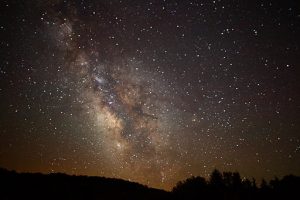Our knowledge of the Universe around us has advanced far beyond that of Galileo’s time. There are many useful star maps that can help you locate stars and constellations available for free online. NASA has created a Hubble Skymap from images captured by the Hubble Telescope. It allows you to locate the positions of stars in the galaxy, zoom in and out, and click on star locations for photographic images captured from Hubble. NASA uses telescopes, space probes, and satellites to obtain interstellar data. NASA makes extensive uses of data science, opens a new window from this information to predict solar activity and asteroid impacts and perform spectral analysis, opens a new window to better understand the temperature and mass of stars.
Google Sky also has some useful resources, including maps of the constellations, images of star clusters, and more images from the Hubble Telescope. On skymaps.com, you can download and print out a free evening sky map each month that will teach you how to identify celestial bodies−such as comets, nebulae, and star clusters−and the shapes and locations of constellations. You can also learn how to make your own star map with this guide from Under Lucky Stars.
Tips to make the most of your night of stargazing:
- Try to do your stargazing before the moon is at full phase, opens a new window and in a place with minimal light pollution to maximize your view of the stars.
- Make sure your eyes are dark-adapted, opens a new window before you begin looking at the night sky. You can do this by looking at a dark scene for about 20 minutes. Your pupils will dilate so you can see the light of the stars more accurately.
- You may see a few “stars” that behave differently, opens a new window. A star that doesn’t “twinkle” is almost certainly a planet, and a rapidly moving object or “shooting star” is actually a meteor.
- Consider buying a red flashlight, opens a new window (or making one by putting red cellophane over your flashlight) so your eyes can handle the night better.
- You won’t need a telescope to start, but you may find phone apps−such as Stellarium, opens a new window, Star Walk, opens a new window and Exoplanet, opens a new window−useful in your quest to explore the night sky.
There’s one last thing to help you out in your stargazing journey−CRRL’s collection! With these books, you can learn even more about stargazing and have a more fulfilling expedition on a summer night.
Fact-filled nonfiction books on stargazing and astronomy in CRRL's collection
Wherever in the galaxy your interests lie, CRRL will help you find the information you need.


